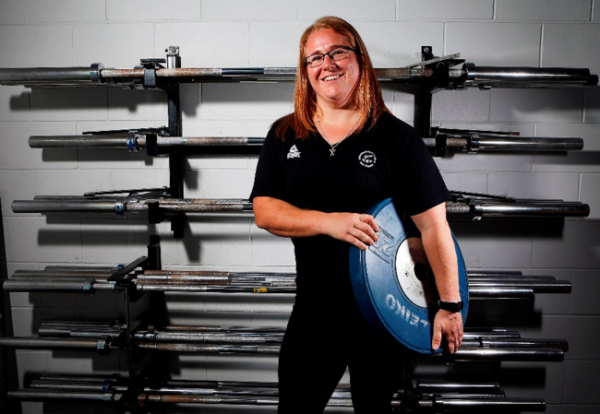It’s been said, “the voice is a weapon.”
And nobody channels that more today than the leftist ideologue. And nobody–in recent memory–has embodied that more than ACLU lawyer Chase Strangio.
On a May 13th episode of the New York Times Podcast, host Kara Swisher and Strangio discussed the slew of laws that have been presented and pushed through state legislatures across the United States in recent months geared at maintaining the integrity of female athletics amidst the onslaught of “transgender rights”. The great majority of these bills have been spearheaded by Republican lawmakers. And Strangio took dead-aim: “You can’t stop people from being trans unless you kill them. And I think on some level, there’s that impulse behind them [the bills].”
Translation: Republicans are murdering transgender people through legislation.
On what possible level could one make such an absurd accusation? Don’t even try to answer, much less figure it out. Because in the warped mind of these peddlers of perplexity, suicide and homicide are synonymous. It’s called “suicide contagion“. The thinking goes something like this: if you don’t give a child puberty-blockers… if you deny a child’s “right” to have his penis removed from his body… that child will eventually commit suicide. But it’s really murder. And the blood will be on the hands of those who abide by sanity.
Here, the voice isn’t so much a weapon as much as it is a nuclear bomb attempting to obliterate creation and natural law.
But I would be remiss to not mention that the sane also have the voice in their arsenal. And with the International Olympic Committee entering their own Brave New World next week–where Laurel Hubbard is poised to become the first transgendered athlete in Olympic Games history–Tracey Lambrechs is refusing to stay quiet on the subject matter.
Robbed of Olympic glory
Lambrechs should have been celebrating and preparing for a return to the Olympic stage. Instead she is now a retired weightlifter-turned-advocate for women in sport.
Before lifting for New Zealand at the 2016 Olympic Games in Rio, Lambrechs had captured bronze at the 2014 Commonwealth Games, and silver at the 2015 Pacific Games. But entering her sporting prime, she had the rug pulled from underneath her.
In 2017, as she was preparing for the following year’s Commonwealth Games, she received a phone call from her coach saying that all of her national records had just been broken. Lambrechs was flabbergasted. “I was like ‘What do you mean? There’s no one else close to me.'”
Meanwhile, for one Laurel Hubbard, 2017 marked a year of transition; from male weightlifter to female weightlifter.
In 2013, Gavin Hubbard had dreams of being an Olympian, and was seemingly on his way. At the time, he was the holder of junior records in New Zealand. But Gavin’s world changed, along with his name (and “gender identity”), four years later. At the 2017 World Masters Games, he placed first in the women’s competition. And then, first place at the 2017 Commonwealth Championships. And then second place at the World Championships in Anaheim, California that same year. In 2019, he hit his stride for the forthcoming 2020 Olympic Games in Tokyo (postponed to 2021 due to COVID-19) by winning gold at the 2019 Commonwealth Championships.
In 10 major competitions since 2017–from New Zealand, to Australia, to Samoa, to Thailand, to the United States–Hubbard has claimed 7 golds and 3 silvers in both Snatch and Clean & Jerk. In other words, 7 gold and 3 silver medals denied biological women.
On Saturday, the IOC green-lighted Hubbard’s opportunity to compete against the opposite sex at the Tokyo Games which get underway this coming Friday. But Lambrechs won’t soon forget the moment her Olympic dreams were stripped away.
“I was told Laurel has started weightlifting and she competed on the weekend, so as of now, you’re number two,” Lambrechs recalled of the phone conversation with her coach in 2017. “I was told if I wanted to go to the next Commonwealth Games I needed to lose 18 kilograms [the equivalent of almost 40 pounds] in three months or retire” Lambrechs told National Review. “Losing that much weight quickly was not ideal for my health and I suffered some severe migraines and started passing out a lot.”
Stay silent, or pay the price
But for Lambrechs, who had every desire to improve in Tokyo upon her 13th place finish at the 2016 Rio Olympics, that was only the beginning of the psychological onslaught. Understandably rattled by this sudden shift by New Zealand’s governing body, Lambrechs began to voice concerns over Hubbard’s participation and the direct threat it was providing to Lambrech’s own personal health and career.
At first, she was told to be “resilient”. But as the buzz began to rise among other female athletes, “be resilient” morphed into “be quiet”. “We were told not to talk to the media and were warned that if we did we could bring the sport into disrepute and then could miss out on being selected or could be dropped from national teams”, said Lambrechs.
And despite all of this, Lambrechs is willing to provide an out for the sport’s governing body, inferring that because they didn’t know how to handle the situation they had a “knee-jerk” reaction and thought “silence would be best” for athletes troubled by the developments.
You would be excused if you thought that rings a little like the bruised wife trying to explain to her neighbour that her husband just had a really hard day at work.
And I would excuse you for thinking my comment more than a little rash. Then, let us put it another way: perhaps this is just a common response speaking more about the abuser than the abused. Because, let’s be frank; it’s a jungle out there for those who believe that boys are boys and girls are girls. Of course Tracey Lambrechs is outspoken in defense of what needs defending. But maybe she also truly cares for even those who are putting up roadblocks in front of her.
Lambrechs also had this to say of the situation:“At the end of the day, this hasn’t been easy for Laurel either. The outcome I’m hoping for is the safety of women’s sports and the inclusion of transgendered athletes where they can participate in sport at what ever level and not be bullied or harassed. Everybody has the right to be who they are and happy.”
Have we heard the same tone from Hubbard or the legion of actors in this play working against not only Lambrechs, but women in general? I’ll wait.
These times call for strong, unwavering advocacy. These times call for strong voices for truth and justice.




















Discussion about this post